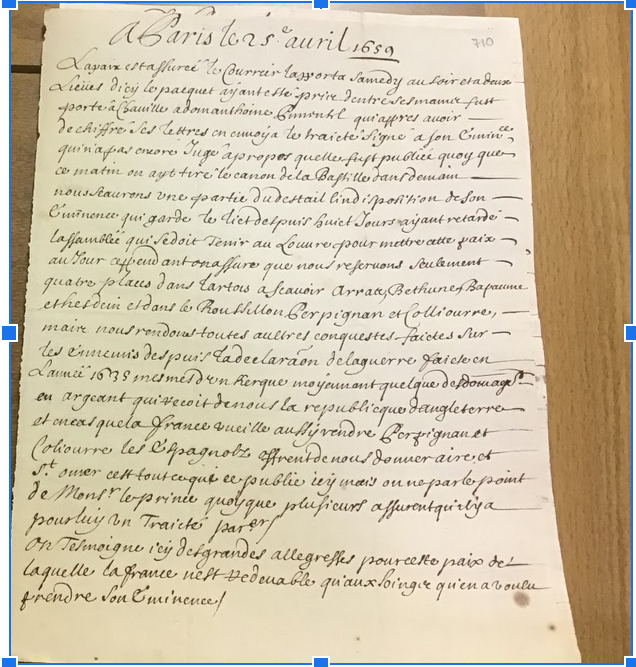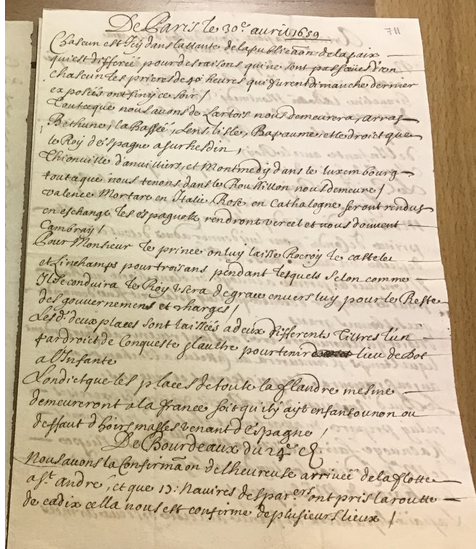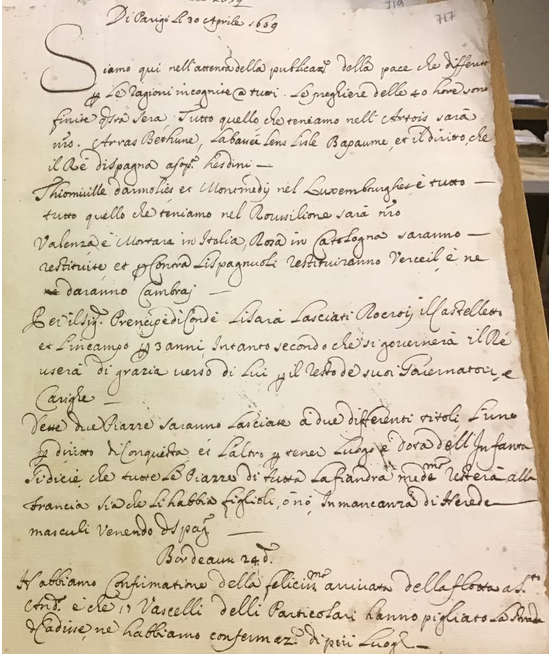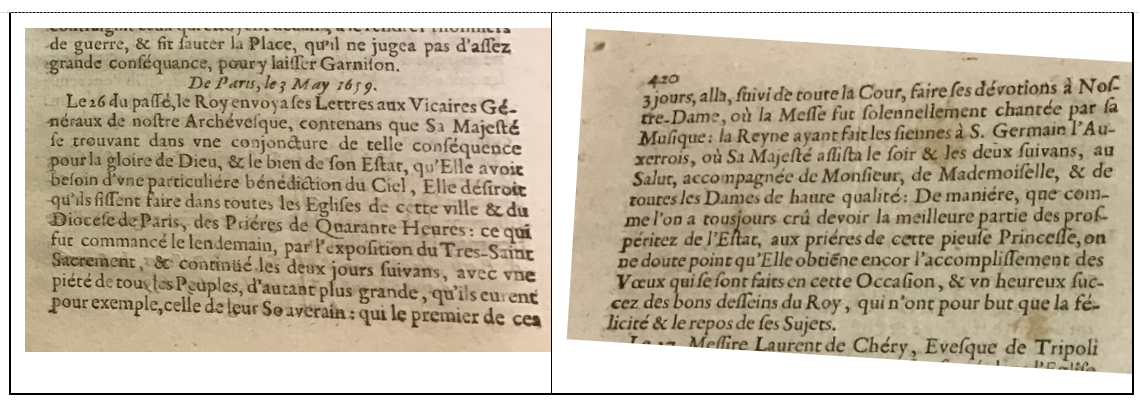The peace of Cateau-Cambrésis between France and Spain, leaving the latter power dominant in Italy after the decades-long Italian wars, was concluded on the 2nd and 3rd of April 1559. All that was left was to work out the details. Meanwhile (says Grand Duke Cosimo I to Lorenzo Pagni) let’s party!

[April 8, 1559, MdP 210, fol. 53r, https://mia.medici.org/Mia/index.html#/mia/document-entity/229 ]
But for the actual documents to begin their itinerary around Europe, more than two more weeks went by. In France, nothing was left to chance, considering the stakes involved, as evinced in this careful narrative from this Paris newsletter:
"Paris, April 25th, 1659. Peace is assured; the courier brought it on Saturday evening and two leagues from here the parcel having been taken from his hands was brought to Chaville to Dom Antoine Pimentel who, after having deciphered the letters, sent the signed treaty to His Eminence [Cardinal Mazarin]"

[MdP 4891, fol. 710. 25 April, https://mia.medici.org/Mia/#/mia/document-entity/54756 ]
Considering the possible impact in France, the decision about publication of the treaty was not to be taken lightly, although signs of jubilation or relief were impossible to repress. The newsletter goes on, adding that the Cardinal
“has not yet judged that it should be published although this morning the cannon of the Bastille were fired, and by tomorrow we will know part of the details, whereas the indisposition of his Eminence, who has been in his bed for the past eight days, has delayed the assembly that should meet at the Louvre to publicize this peace; whereas in the meantime we are assured that we only keep four places in Artois, which are, Arras, Bethune, Bapaume, and Hesdin…."
Still on the 30th, the public was in the dark, as this Paris newsletter noted:
"From Paris on April 30, 1659. Everyone here is waiting for the publication of the peace which is postponed for reasons which are not known to anyone. The 40 hour prayers that were instated last Sunday ended tonight. All that we have in Artois will remain with us, Arras, Bethune, La Bassée, Lens, L'Isle, Bapaume, and the right that the king of Spain has over Lesdin, Thionville, Danvilliers and Montemedy in Luxembourg, everything that we hold in Roussillon remains with us. Valenza, Mortara in Italy, Roses in Catalonia will be returned in exchange the Spaniards will return Vercelli and give us Cambrai. [...]"

[MdP 4891, fol. 711 30 April: https://mia.medici.org/Mia/#/mia/document-entity/54759 ]
The information in the 30 April newsletter was important enough for a translation to be made up for circulation to the Italian audience, now found in the same volume in the archive, at folio 717.

https://mia.medici.org/Mia/#/mia/document-entity/54759
From the newsletters to the newspapers, however, in this demi-monde between script and print, even more time would pass; so that the French Gazette takes notice only in the issue of 3 May, referring however, to letters received a week before; to wit:

[MdP 4891 fol. 687 https://mia.medici.org/Mia/index.html#/mia/document-entity/54739 ]
"On the 26th of last month, the King sent his Letters to the Vicars General of our Archbishop, saying that His Majesty finding himself in such a situation for the glory of God, and the good of his State, needed a particular blessing from Heaven, and wanted them to make the Churches of this city and of the Diocese of Paris recite the Forty Hours Prayers in the streets: and this began the next day, by the exposure of the Blessed Sacrament, and continued for the next two days, with so much greater piety of all the People, considering that they had the example of their Sovereign…."
Timing indeed was everything, these examples show. But timing depended upon numerous variables, which we are discovering every day as we attempt to recover the lost world of early modern news.
FURTHER READING
Bertrand Haan. Une paix pour l'éternité: La négociation du traité du Cateau-Cambrésis. Bibliothèque de la Casa de Velázquez 49. Madrid: Casa de Velázquez, 2010
